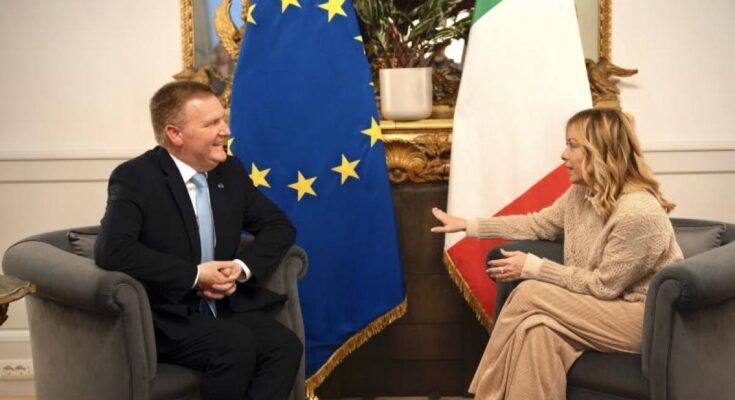“The overall judicial reform and, in particular, the separation of judges’ careers, is consistent with the system in force in the most important European countries. In a positive and constructive climate, the Government will continue to provide the European Commission with up-to-date information on the content of the law implementing the reform, if it is confirmed by referendum.” It was through this piece, released from Palazzo Chigi at the end of a meeting between Giorgia Meloni and European Commissioner Michael McGrath, that the government chose to provide a political framework for the visit of the European Commissioner for Democracy, Justice and the Rule of Law.
Not a random statement: the prime minister took this opportunity to mark the continuity between the Italian project and European standards, in the midst of the political campaign accompanying the constitutional reform destined for a referendum. And stated that career separation is not an anomaly, but rather a “characteristic of Europe’s main democracies”, indicating that they are aligned with Brussels precisely on the most complex area, namely the rule of law. McGrath’s visit, preceded by in-depth discussions with Deputy Minister Alfredo Mantovano, provided the institutional framework for this political message. During the talks, Palazzo Chigi reported, the steps of the constitutional process and future obligations in the event of a yes vote were reviewed. Meloni reiterated his intention to continue dialogue with the Commission, and stated the reforms were part of a shared commitment to strengthen the rule of law.
The commissioner, on his institutional tour, also met with Justice Minister Carlo Nordio, who explained the key points of the reform and discussed the proposed EU anti-corruption directive with McGrath. Here too, Rome emphasizes European alignment: modernization of procedures, digitalization, separation of functions. In short, a business card for an Italy that wants to present itself as a reforming country that seeks to improve its reliability.
McGrath’s endorsement in parliament added a further political element. Addressing the assembled commissions, the commissioner outlined a new “European shield for democracy,” a package of measures to combat external interference, disinformation and media fragility. The themes used by the majority were demands for transparent information and solid institutions. Senator Giulio Terzi di Sant’Agata, president of the European Union Policy Commission, spoke of a “precious opportunity” and presented McGrath with a resolution on measures to counter hostile propaganda, linking the fight against disinformation to the most sensitive front in European democracy. Therefore, if Brussels calls for a more efficient justice system and a more resilient information space, Palazzo Chigi argues, Italy is on that path.
The meeting with McGrath thus became an opportunity for Meloni to consolidate a political line: reform is not a step forward but an approach to European standards. And that referendum, in the Prime Minister’s reading, will be held to confirm a choice that does not isolate the country, but integrates it into the mainstream of major democracies.



